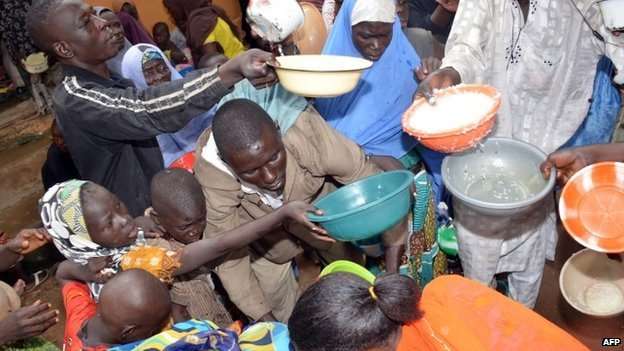The United Nations Food and Agriculture Organisation, FAO has predicted that about 7 million Nigerians in 16 Northern states and the Federal Capital Territory, FCT would be in food and nutrition crisis between June and August 2020.
This is contained in the Cadre Harmonisѐ, CH report presented to stakeholders at a Food and Nutrition Security workshop in Abuja, the nation’s capital.
The CH conducted in Nigeria every year by FAO is a comprehensive analytical framework that takes into account various indicators of food and nutrition security outcomes and the inference of contributing factors.
Also Read: Rivers Govt. to construct 4th Flyover Bridge in Port Harcourt
The phase 3 of the CH in Nigeria was conducted in 16 northern states including the Federal Capital Territory. The affected states include Borno, Adamawa, Yobe, Benue, Gombe, Taraba, Katsina, Jigawa, FCT, Kano, Bauchi, Plateau, Kaduna, Kebbi, Sokoto, Zamfara and Niger.
According to FAO, results from successive CH analysis have become the major yardstick for estimating the areas and population of vulnerable people in need of humanitarian assistance.
Presenting the report, the Acting FAO Representative in Nigeria, Alhassan Cisse, said that more than four million people in these 16 states and the FCT are expected to be in crisis or worse till May 2020.
According to him, the exercise, which started in 2015 has been adopted by the food security stakeholders as an early warning tool for preventing food crisis.
In its recommendations, the Organisation called for the implementation of agricultural and non-agricultural policies to increase income-generating activities that will impact positively on food consumption, livelihood and nutrition at household level.
Also Read: Bayelsa State sets up Coronavirus Quarantine Centre
The Organisation also recommended the need for adequate budgetary allocation for the implementation of the CH analysis and other supporting activities at the federal and state level.
The CH analysis was facilitated by the Federal Ministry of Agriculture and Rural Development, FAO, World Food Programme, WFP, FEWSNET, and the Permanent Interstate Committee for Drought.








